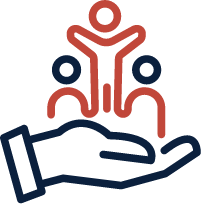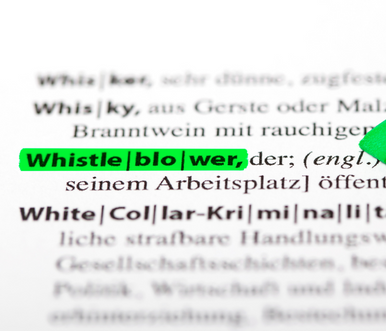When a supervisor, employee, contractor, or other person inside an organization uses their position of trust to commit wrongdoing, they often use their knowledge of how that organization’s systems work to conceal their unethical or illegal activity. They may exploit their authority to discourage others from revealing what they know. Yet it is rarely the case that fraud, abuse, corruption, and dangers to public health and safety leave no traces.
When someone comes forward to expose instances of misconduct they’ve witnessed or discovered evidence of, that is known as whistleblowing. Around the world, the vital role of whistleblowers is recognized through legislation that protects whistleblowers from retaliation for speaking up. Even with those legal protections in place, however, members of an organization may hesitate to come forward. If they do not have a safe method for reporting, the doubt that they will be supported or believed can discourage them from speaking up.
The Benefits of a Strong Whistleblowing Policy
In the U.S. and Europe, the law is quite clear about the protections owed to whistleblowers. Dozens of whistleblower laws at the federal, state, and local levels, from the False Claims Act to the Clean Air Act to the Antarctic Conservation Act, lay out specific definitions and procedures. In 2019, the EU strengthened whistleblower protections throughout the European Union by adopting Directive 2019/1937, which sets uniform standards for whistleblower protections in member states. In fact, around the world laws are in place to attempt to encourage effective whistleblowing.
Organizations that approach whistleblowing from the perspective of merely following the letter of the law miss the key benefit that whistleblowing can provide, though. According to a 2018 report entitled “Evidence on the Use and Efficacy of Internal Whistleblowing Systems,” which analyzed 10 years of records from NAVEX Global, companies that provide their employees with internal channels to disclose unethical activity earned a greater return on assets than those that did not. In addition, robust internal whistleblowing reduced pending lawsuits by 6.9% and lowered settlement costs by 20.4%, compared to companies with poor reporting procedures.
Safe Whistleblowing
Ensuring that the members of your organization know you’re serious about protecting their right to come forward is about more than simply setting a whistleblowing policy. Employees must have an easy, safe way to report—anonymously, if they choose—to give them the confidence to come forward. #NotMe provides your employees with secure reporting at their fingertips while facilitating the investigation and resolution of issues brought to your attention. Our platform helps your organization meet compliance standards for whistleblowing in the U.S., the EU, and around the world. More importantly, it gives you the opportunity to identify and manage risk at an early stage, before irreversible reputational and financial damage has been done.
To find out more about how #NotMe can help your organization eliminate misconduct through effective whistleblowing, or to request a demo, contact us here.
Read our blog on EU Whistleblowing Directive here









